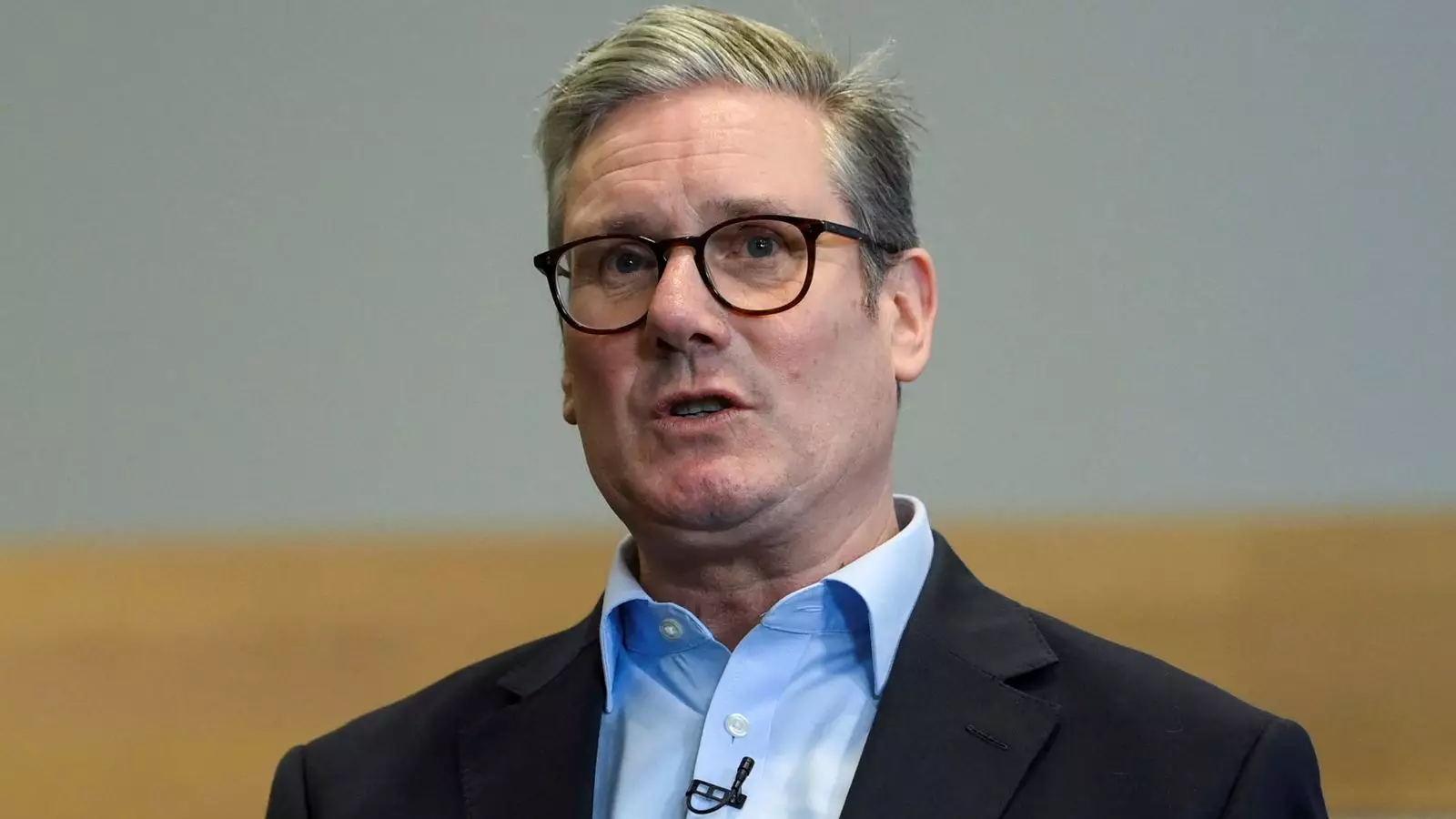As the Labour government gears up to unveil its first budget, Chancellor Rachel Reeves finds herself at a pivotal moment fraught with challenges and expectations. With Prime Minister Sir Keir Starmer hinting at embracing the “harsh light of fiscal reality,” the government is expected to navigate a landscape reshaped by unprecedented economic turmoil. This budget not only addresses immediate fiscal conditions but also sets the tone for the future trajectory of the UK’s economy.
Starmer’s upcoming speech underscores a critical acknowledgment: the economy cannot be viewed through the lens of past successes. He invokes the collective memory of the nation, contrasting today’s bleak economic climate with previous periods that, while flawed, seemed less daunting. The words “unprecedented circumstances” resonate as they encapsulate the pressing issues the government must tackle, including long-standing weaknesses in productivity, investment, and public services that have been neglected over the past fourteen years.
In his speech, Starmer is poised to paint a picture of a future where economic growth isn’t just a fleeting hope but a realistic goal. He intends to emphasize that the current financial landscape is not insurmountable and that strategic decisions can lead to a transformative outcome. By framing the budget as an essential departure from past practices, he signals a roadmap toward revitalizing British growth.
The proposed budget changes, including a hike in employer national insurance and the elimination of tax exemptions for private schools, signify a policy shift aimed at reallocating resources for broader societal benefit. However, the government faces criticism and skepticism regarding its commitment to not taxing “working people.” Critics argue that extending the freeze on income tax thresholds raises concerns about the fairness of the measures aimed at balancing the books.
The term “working people” has sparked considerable debate. As the public awaits clearer definitions from the government, there is rising frustration about who precisely benefits from Labour’s fiscal policies. While Starmer has reassured the public that income tax won’t increase for those earning active salaries, ambiguity remains regarding individuals who derive income from passive investments, such as property or financial assets. This distinction is critical, as it could shape public perception of the government’s credibility in its promise to protect those who work for a living.
Chancellor Reeves’s upcoming announcement aims not only to plug a projected £40 billion budget shortfall but also to reignite public service funding that has faced cuts for years. This balancing act presents a double-edged sword: while there is a righteous push to stem inadequate public spending, any perceived inconsistency in taxation policy could lead to heightened criticism. The government must tread carefully to maintain its commitment to its principles, while ensuring that it effectively addresses the pressing needs of its constituents.
Among the key commitments already unveiled are significant allocations for educational and health infrastructure. The pledge of £1.4 billion to rebuild deteriorating schools and a £10 billion boost to the NHS signifies a commitment to long-term investment in critical areas. These measures aim to directly address issues like crumbling facilities and long patient waiting times, which have plagued public services for far too long.
Despite the funding promises, Minister Bridget Phillipson’s reluctance to speculate on specific budgetary measures raises questions about the depth of the government’s strategy. While affirming the government’s stance on taxes, she emphasized the necessity of fiscal prudence while also confronting the realities of Britain’s economic burdens.
As the Labour government unveils its budget amidst widespread scrutiny, it is clear that both aspirations and harsh realities intermingle. Sir Keir Starmer’s call for the public to embrace tough decisions signals a readiness to confront difficult choices rather than shy away from them. He cites historical precedents to remind citizens of the resilience required to propel the nation forward.
Ultimately, the success of this budget will not only depend on fiscal prudence but also on the government’s ability to maintain a dialogue with its constituents, reassuring them that their sacrifices are part of a larger vision for a prosperous future. As the public braces for the announcement, questions linger about how these measures will translate into tangible benefits for the average citizen, shaping the narrative of Labour’s economic stewardship in times of hardship. Only time will tell if this budget can indeed initiate a “better future” as promised.

Leave a Reply